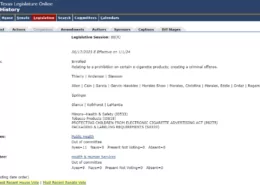The 6 Largest Nicotine and Tobacco Companies Shaping the U.S. Market
Discover the 6 largest nicotine and tobacco companies in the U.S. (PMI, Altria, RAI, ITG, Liggett, Swedish Match/ZYN) and their shift to smokeless products.
The nicotine and tobacco landscape in the United States is undergoing a profound transformation. For decades, traditional cigarettes reigned supreme, but shifting consumer preferences, heightened health awareness, and evolving regulatory pressures have accelerated a pivot towards what the industry terms “reduced-risk products.” This category encompasses a diverse range of alternatives, including modern oral nicotine pouches, e-cigarettes (vapes), and heated tobacco products. While legacy tobacco giants, built on the back of combustible cigarettes, still command significant market share, their strategies are increasingly focused on navigating this new era. Simultaneously, specialized companies, particularly in the smokeless sector, have risen to prominence. Let’s explore the six largest tobacco and nicotine companies currently shaping the U.S. market, their flagship products, and their approaches to this evolving industry.
1. Philip Morris International (PMI)

Market Cap Dominance & Global Reach with a U.S. Re-entry: Philip Morris International stands as a global behemoth in the tobacco industry. While historically known for manufacturing and selling Marlboro and other cigarette brands outside the United States (with Altria holding U.S. rights), PMI has made a significant and strategic re-entry into the U.S. market, focusing heavily on smoke-free alternatives. Its market capitalization reflects its massive global footprint and its ambitious vision for a “smoke-free future.”
Strategic Shift to Smoke-Free: PMI’s most notable move in recent years, impacting the U.S. directly, was its landmark acquisition of Swedish Match in 2022. This wasn’t just a financial transaction; it was a clear signal of PMI’s commitment to leading the transition away from combustibles. Swedish Match brought with it the phenomenally successful ZYN nicotine pouch brand, which has become a category leader in the U.S. modern oral nicotine market. ZYN’s rapid growth underscores a significant consumer shift towards tobacco-leaf-free nicotine options.
Beyond pouches, PMI is heavily invested in its heated tobacco platform, IQOS. While IQOS has faced a complex regulatory journey in the U.S. (initially marketed by Altria under license, then impacted by import bans due to patent disputes, with PMI now regaining full U.S. commercialization rights), it remains a cornerstone of PMI’s global smoke-free strategy. The company positions IQOS as a product that heats tobacco without burning it, thereby significantly reducing the levels of harmful chemicals compared to cigarette smoke. PMI is actively working to expand IQOS availability and acceptance in the U.S. market as a key alternative for adult smokers.
PMI’s U.S. strategy is clearly focused on building a portfolio of scientifically substantiated reduced-risk products, leveraging the strength of ZYN and the potential of IQOS to cater to adult smokers seeking alternatives.
2. Altria Group

The U.S. Marlboro Custodian & Diversification Efforts: Altria Group is the parent company of Philip Morris USA, which owns the U.S. rights to Marlboro, the nation’s leading cigarette brand, alongside other iconic combustible brands like Parliament and Virginia Slims. While the decline in U.S. adult smoking rates directly impacts its core business, Altria remains a formidable player due to its established market share and its strategic, albeit sometimes challenging, investments in smoke-free products.
Smokeless Tobacco Heritage & Modern Oral Nicotine: Altria has a strong presence in the traditional U.S. smokeless tobacco market through its subsidiary, U.S. Smokeless Tobacco Company, which manufactures leading brands like Copenhagen and Skoal (moist snuff). Recognizing the shift towards modern oral nicotine, Altria also markets its own nicotine pouch brand, On!, competing directly with ZYN and Velo.
Vaping and Beyond – A Mixed Journey: Altria’s foray into e-cigarettes has been marked by significant ups and downs. Its substantial minority investment in JUUL Labs faced immense scrutiny and ultimately resulted in significant financial write-downs as JUUL encountered regulatory headwinds and public backlash over youth vaping. More recently, Altria has divested from JUUL and acquired NJOY Holdings, gaining access to NJOY Ace, one of the few pod-based e-cigarette products to have received marketing authorization from the FDA. This move signals a renewed, more focused approach to the vaping category under stricter regulatory conditions.
Altria’s strategy involves managing the decline of its combustible cigarette business responsibly while investing in and growing its portfolio of smoke-free alternatives, aiming to provide adult tobacco consumers with a range of choices.
3. Reynolds American Inc. (RAI)

A BAT Powerhouse in the U.S.: Reynolds American Inc. is a wholly-owned subsidiary of global giant British American Tobacco (BAT). RAI is a major force in the U.S. tobacco market, with a portfolio of well-known cigarette brands including Newport (the leading U.S. menthol brand), Camel, and Pall Mall.
Leading in Vapor and Modern Oral: Like its competitors, RAI has made significant strides in the alternative nicotine product space. Its Vuse brand is a leading e-cigarette in the U.S., particularly its Vuse Alto device. Vuse has also achieved FDA marketing authorizations for some of its tobacco-flavored products, a critical differentiator in the highly regulated U.S. vaping market. In the rapidly expanding modern oral nicotine pouch category, RAI offers Velo, a direct competitor to ZYN and On!, and a key part of BAT’s global “new categories” strategy.
Innovation and Regulatory Engagement: RAI and BAT emphasize scientific research and product innovation as they transition towards a portfolio with a greater emphasis on reduced-risk products. The company actively engages with the FDA’s regulatory processes, seeking authorizations for its newer products while navigating the complexities of the evolving market. Their focus is on providing adult consumers with a choice of potentially less harmful alternatives to smoking, backed by scientific substantiation.
4. ITG Brands

Imperial Brands’ U.S. Arm & Value Focus: ITG Brands is the U.S. subsidiary of UK-based Imperial Brands PLC. It holds the position of the third-largest tobacco company in the U.S. by market share. ITG Brands’ portfolio includes well-established cigarette brands such as Winston, Kool, and Salem. A significant part of its strategy involves catering to the value-conscious segment of the adult smoker market.
Presence in E-Cigarettes: In the vaping space, ITG Brands markets blu e-cigarettes. While blu was an early entrant in the e-cigarette market, it has faced intense competition from brands like Vuse and JUUL, and more recently, from the proliferation of disposable vaping products. ITG Brands continues to adapt its strategy for blu in a rapidly changing category, focusing on compliance and responsible marketing.
ITG Brands’ approach involves maintaining its position in the traditional cigarette market, particularly in the value segment, while selectively participating in the e-cigarette category and exploring other next-generation product opportunities in line with shifting consumer preferences and regulatory landscapes.
5. Liggett Group LLC

Vector Group’s Tobacco Segment & Niche Player: Liggett Group, part of Vector Group Ltd., is a smaller player compared to the giants like Altria and RAI, but it maintains a consistent presence in the U.S. cigarette market. It is known for its value-oriented cigarette brands, such as Pyramid, Eve, and Grand Prix. Liggett has historically focused on specific market segments and has a loyal customer base for its discount brands.
Focus on Combustibles: Unlike the larger companies that have aggressively diversified into a wide array of smokeless products, Liggett’s primary focus has remained on the combustible cigarette sector. While it navigates the declining overall cigarette market, its strategy often involves competitive pricing and targeted marketing for its value brands. Its diversification into smoke-free alternatives has been less pronounced than that of its larger competitors, making it more reliant on the performance of its traditional tobacco portfolio.
6. Swedish Match (Now part of Philip Morris International)

The Modern Oral Nicotine Pioneer: While now fully integrated into Philip Morris International, Swedish Match deserves its own mention due to its transformative impact on the U.S. smokeless market before and during its acquisition. Swedish Match was a pioneer in traditional Swedish snus and, critically, became the trailblazer in the U.S. modern oral nicotine pouch category with its ZYN brand.
ZYN’s Market Disruption: ZYN’s introduction and explosive growth fundamentally reshaped consumer habits, offering a tobacco-leaf-free, spit-free, and discreet oral nicotine option that resonated strongly with adult nicotine users seeking alternatives to smoking and traditional smokeless tobacco. Its success was a key driver for PMI’s acquisition, providing PMI with an immediate leadership position in this rapidly expanding U.S. category.
Even as part of PMI, the ZYN brand continues to be a dominant force, driving significant revenue and symbolizing the broader consumer shift towards innovative, smoke-free nicotine delivery systems. The legacy of Swedish Match’s innovation in the oral nicotine space continues to influence the market strategies of all major players.
Conclusion: An Industry in Flux, Led by Evolving Giants
The six companies highlighted – Philip Morris International (with Swedish Match), Altria Group, Reynolds American Inc. (BAT), ITG Brands, and Liggett Group – represent the current power structure of the U.S. nicotine and tobacco industry. Each is navigating a period of unprecedented change. The decline of traditional cigarette consumption is a market reality, compelling these entities to invest heavily in, and strategically position, their portfolios of smoke-free alternatives. From PMI’s global push with IQOS and ZYN to Altria’s acquisition of NJOY and RAI’s success with Vuse and Velo, the race to capture the adult consumer seeking alternatives is well underway.
Regulatory oversight by the FDA remains a critical factor, shaping which products can legally be marketed and under what conditions. As these companies continue to innovate and adapt to shifting consumer demands and a complex regulatory environment, their actions will undoubtedly define the future of tobacco and nicotine consumption in the United States for years to come. The transition is complex and multifaceted, but the direction towards a market with a greater emphasis on alternatives to combustible cigarettes is clear.
- Fumot Mate Pod Kit Review: 10,000 Puffs & TPD Legal? - August 10, 2025
- UK Vape Tax Could Push E-Liquid Prices to £40 a Bottle - August 10, 2025
- Minnesota: Northfield Postpones Vote on Flavored Vape Ban - August 10, 2025









